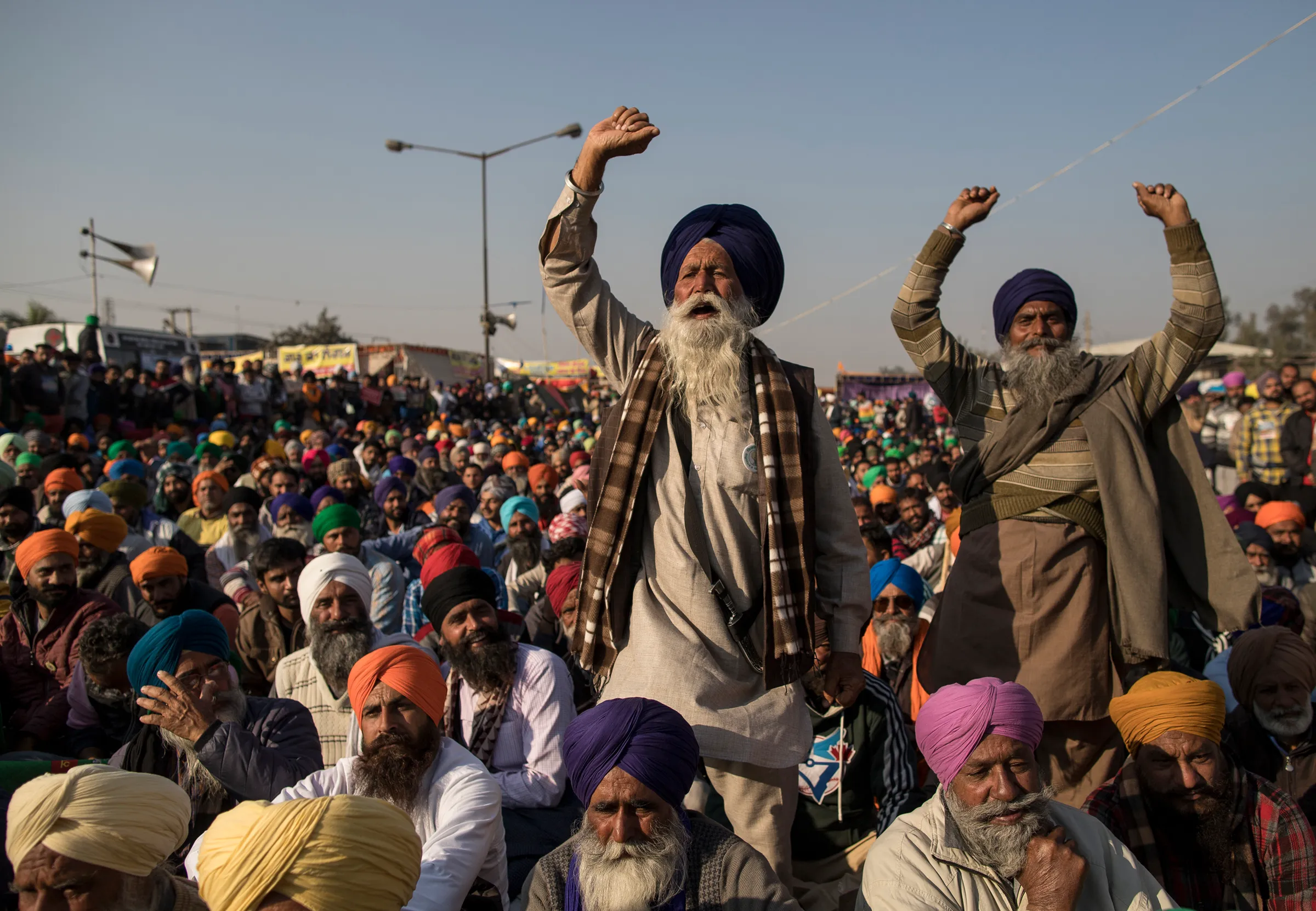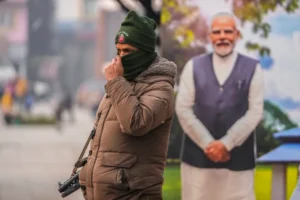In 2019, the Hindu fascist administration of the Bharatiya Janata Party (BJP) chose to target Sikh minority in East Punjab and Muslims in Kashmir. It was a well thought out strategy to muzzle dissenting voices, and causing a humanitarian disaster in two Muslim majority locations. While the world is fully aware of the situation in Kashmir, it has not paid as much heed to the situation in Punjab.
BJP Government is transforming East Punjab into another Kashmir, and the world community must take note of the crimes being conducted against the Sikh minority.
The Indian Human Rights Violations (HRVs) committed in Indian Illegally Occupied Jammu and Kashmir (IIOJ&K) and East Punjab bear a striking resemblance. The Indian Government is using brute force to suppress dissenting voices in the two regions. In IIOJ&K, the Indian Government has ensured a complete lockdown, imposed curfew, while detaining political leaders, activists, and journalists. The internet and phone lines have been cut, and people are living in a state of constant fear as Kashmir is the biggest human prison so far.
Repression Tactics to Suppress Sikh Minority in East Punjab
In East Punjab, the Indian Government has used similar techniques to suppress conflicting voices. The Indian Government has targeted the Sikh minority, especially in the East Punjab, which has a long history of resisting the tyranny of the Indian state. Experts believe that IIOJ&K has long served as an experimental lab for the Indian fascist region, and Punjab has now been chosen deliberately to mimic the results.
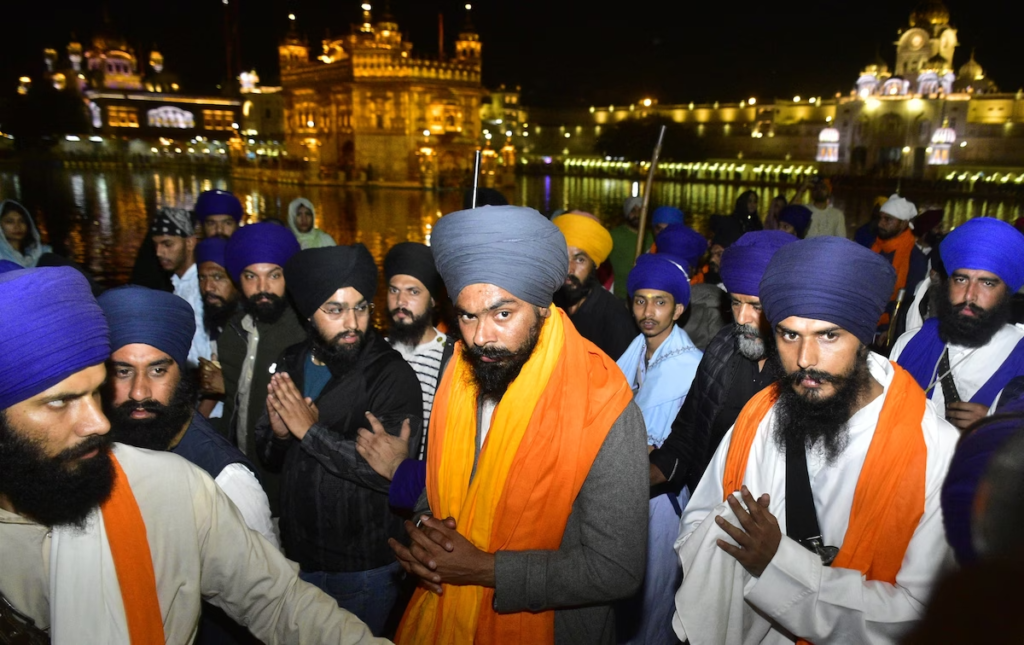
BJP Sarkar has been targeting the Sikh community through the National Investigation Agency (NIA). It has used NIA to crush differing voices within Sikh community, searching the homes of Sikh activists and arresting them without any proof. The Government has also been using the Unlawful Activities Prevention Act (UAPA) to target the Sikh community. The UAPA is a draconian law that allows the Indian Government to detain anyone without any evidence.
Also Read: Modi’s Draconian Policies Impacting Sikh Minority
The Farmer Protests and Government Violence
The farmer protests in East Punjab, where the government has not only failed to listen to the farmers’ demands but has also approved bills that are against them, have been ongoing for over a year now, with thousands of farmers taking to the streets to voice their opposition to such draconian measures. The protests have been met with violence and repression from the Government, with protesters being beaten, arrested, and even killed.
The situation is a clear violation of the basic rights and freedom of the farmers of East Punjab. It is imperative that Indian Government stops her attempts to take control of the region’s agricultural lands and respect the autonomy and rights of the local people. Failure to do so will only lead to further unrest and instability in the area, with potentially disastrous consequences for both the people of East Punjab and the wider Indian society.
Also Read: Indian Farmers Movement: ‘Chalo Delhi’ March
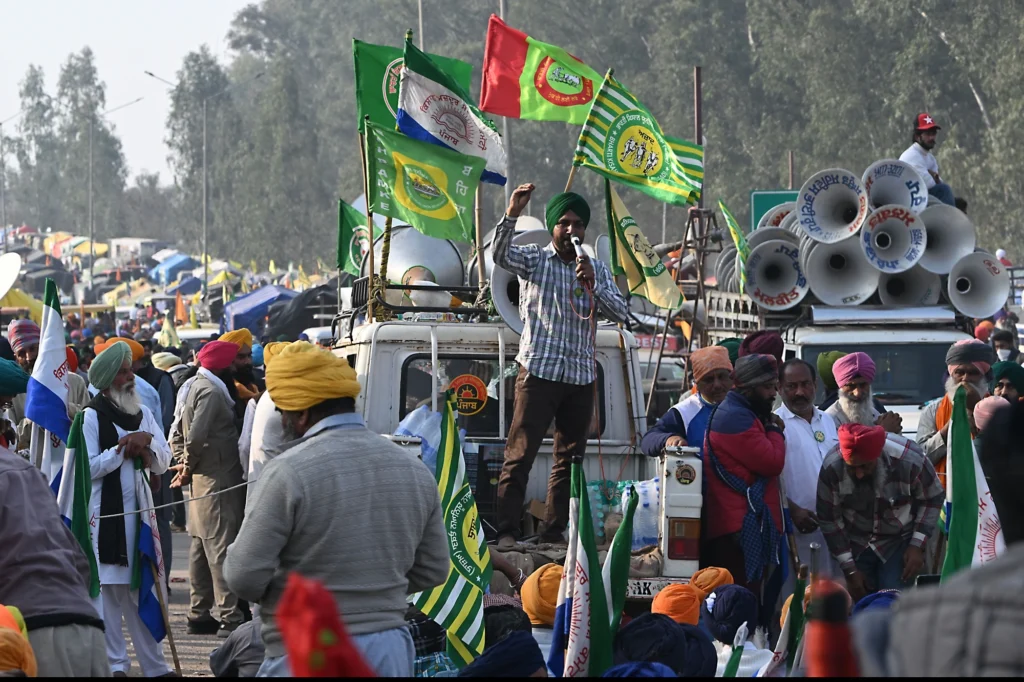
The Khalistan Referendum
As a result, the Khalistan Referendum, which calls for a separate state for the Sikhs, has gained significant traction in the international Sikh community. Referendums have been held in the entire important capital world widely, with the Sikhs overwhelmingly voting to leave the Indian Union. This has put tremendous pressure on the Indian Government, which has been forced to confront the fact that the Sikhs no longer see themselves as part of the Indian nation. The Government’s response has been one of repression and violence, with the arrest and detention of Sikh activists and leaders. However, this approach is unlikely to succeed in quelling the growing demand for autonomy and self-determination among the Sikh community.
Like the Kashmiris, the Sikhs now realize the past mistakes of their leadership in deciding to stay in the Indian Union. They see this as a historic opportunity to break free from the shackles of Indian domination and to forge a new path for themselves.
The situation in East Punjab is a clear indication of the failure of the Indian Government’s policies towards minority communities. The Government’s attempts to impose its will on the region through force and coercion have only served to alienate the Sikhs and push them toward greater resistance. The wounds caused by the military operation “Operation Blue Star” launched in 1984, are still fresh in the memories of Sikh citizens in East Punjab.
Saffonization of the Sikh Minority in East Punjab
Now, the Modi Government has started another brutal crackdown on Sikhs which is further inflaming tensions and creating a sense of fear and mistrust among the community. The Modi Government’s attempts to Saffonize the Sikhs in Punjab are a clear violation of the rights of minority communities in India. The Sikh community has a distinct identity and culture that must be respected and protected by the Government.
The arrest of Amritpal Singh who is pro-Khalistani leader and Chief of the ‘Waris Punjab De’ by the Punjab Police has raised concerns about the safety of Sikh citizens in East Punjab. Legal advisor to ‘Waris Punjab De’, Imaan Singh Khara, has stated that there is a real fear that Amritpal Singh may be killed in a fake police encounter. This is just one example of the increasing tension between the Sikh community and the Indian Government. The shutdown has not only affected the farmers’ ability to communicate with each other and with the outside world but has also had a significant impact on businesses and education.
In a disturbing turn of events, the Sikh community abroad has also seen an increase in targeted killings by Hindu fanatics.
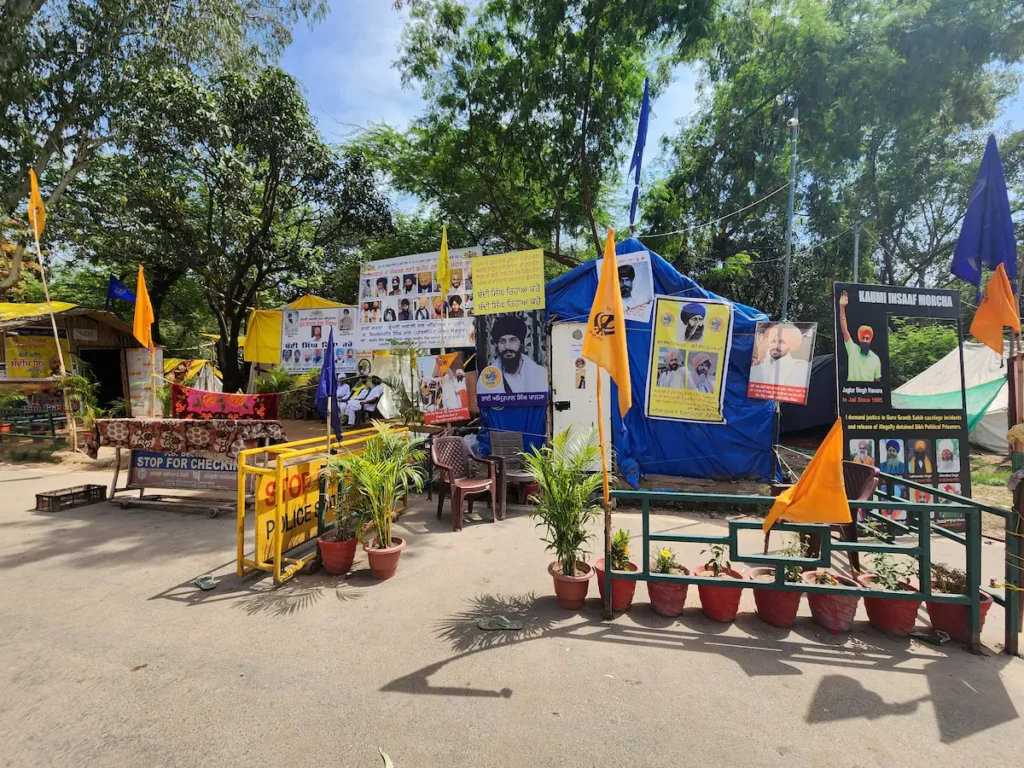
These acts of religious bigotry have left the Sikh diaspora vulnerable and traumatized. Instances of Sikhs being brutally attacked or killed in other places, purportedly planned by Hindu extremist forces, have heightened tensions and highlighted the need for international attention and assistance. These acts of violence not only contradict the values of religious freedom and peaceful cooperation, but also demonstrate the perilous consequences of increasing extremism beyond borders. In conclusion, the Indian Government is making East Punjab another Kashmir by using brute force to suppress the voices of dissent in the Sikh community. The international community needs to take notice of the situation in Punjab and hold the Indian Government accountable for its actions. The Indian Government needs to respect the minorities living in India. To prevent such carnage, the world community must denounce such atrocious crimes and endeavour to promote an environment of tolerance and understanding that ensure the safety of minority communities around the world.
The views shared in this article reflect the author’s personal views and do not necessarily align with the institution’s official stance.
Sara Nazir is an Islamabad-based researcher with a background in Strategic Studies & area of interest is non-traditional warfare. She can be reached on saranazeer2@gmail.com & @SaraNazir13 (on X).

